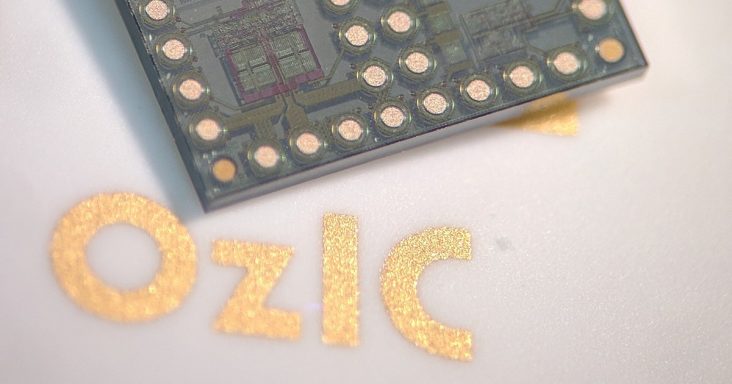Ozark IC receives $750,000 grant from U.S. Air Force
by August 6, 2020 9:44 am 875 views

Fayetteville-based electronics manufacturer Ozark Integrated Circuits Inc. (Ozark IC) announced Wednesday (Aug. 5) it received a $750,000 grant from the U.S. Air Force to put more processing power into controls for jet engines and provide new ways for manufacturers to improve their efficiency and performance.
Ozark IC was notified in late July that it would receive its third Small Business Innovation Research Phase II award in two months. The most recent award will be used for a project to create a high-temperature processing core that’s based on the open-source RISC-V architecture and will be used to power a microcontroller for operation at temperatures as high as 390 degrees Fahrenheit (200 degrees Celsius). The 32-bit RISC-V core will provide processing capabilities that will expand and enhance Ozark IC’s existing line of products that can withstand those temperatures.
“This Phase II project is very important for us,” said Matt Francis, founder and president of Ozark IC. “By developing a high-temperature version of a standard microprocessor architecture like the RISC-V, we will be able to significantly expand the functionality, versatility, speed and reliability of our 200 (-degree Celsius) products. Our customers are also very excited about this prospect.”
High-temperature integrated circuits are important components for enabling distributed engine controls in turbine engines and hypersonic platforms. The 32-bit RISC-V microprocessor core is designed to have a life of more than 10,000 hours. This will increase system lifetimes for smart sensing and actuation nodes in distributed engine control systems.
“A 32-bit microcontroller that can last for over 10,000 hours at 200 (degrees Celsius) is a major improvement in jet engine electronics,” said Bruce Wood, software engineer for aircraft engine manufacturer Pratt & Whitney. “And the use of a standard architecture, such as the RISC-V, is very desirable. We are looking forward to seeing the results of this Phase II project.”
The expected processing speed at 390 degrees Fahrenheit will exceed existing high-reliability silicon processors by five to 10 times and exceed the lifetime of high-temperature silicon parts by two to five times. Long-life, high-temperature electronics can be used in turbine engine controls and down-hole oil, gas and geothermal systems for exploration and completion of underground resources.
Ozark IC’s RISC-V core will be available in its smart node module, the AQ-200, and these modules are used for data acquisition, signal processing and communications. The RISC-V core will provide faster performance, and by using the open-source RISC-V architecture, it will be available to all software and firmware associated with the architecture.
“We are impressed that Ozark IC has chosen the RISC-V architecture for its high-temperature work,” said Ted Marena, marketing chair of nonprofit consortium RISC-V International. “The open Instruction Set Architecture provides the flexibility to assist in the development of a 200 (-degree Celsius) version RISC-V processor. We look forward to devices such as the AQ-200 that widen the availability and applications of RISC-V microprocessors and accelerate the adoption of the RISC-V architecture.”
Ozark IC was founded in 2011 and develops analog, mixed-signal and signal processing integrated circuits to be used in extreme conditions, including energy exploration, aerospace, space exploration and industrial controls. Products include hardware and software, integrated circuits and packaging.
